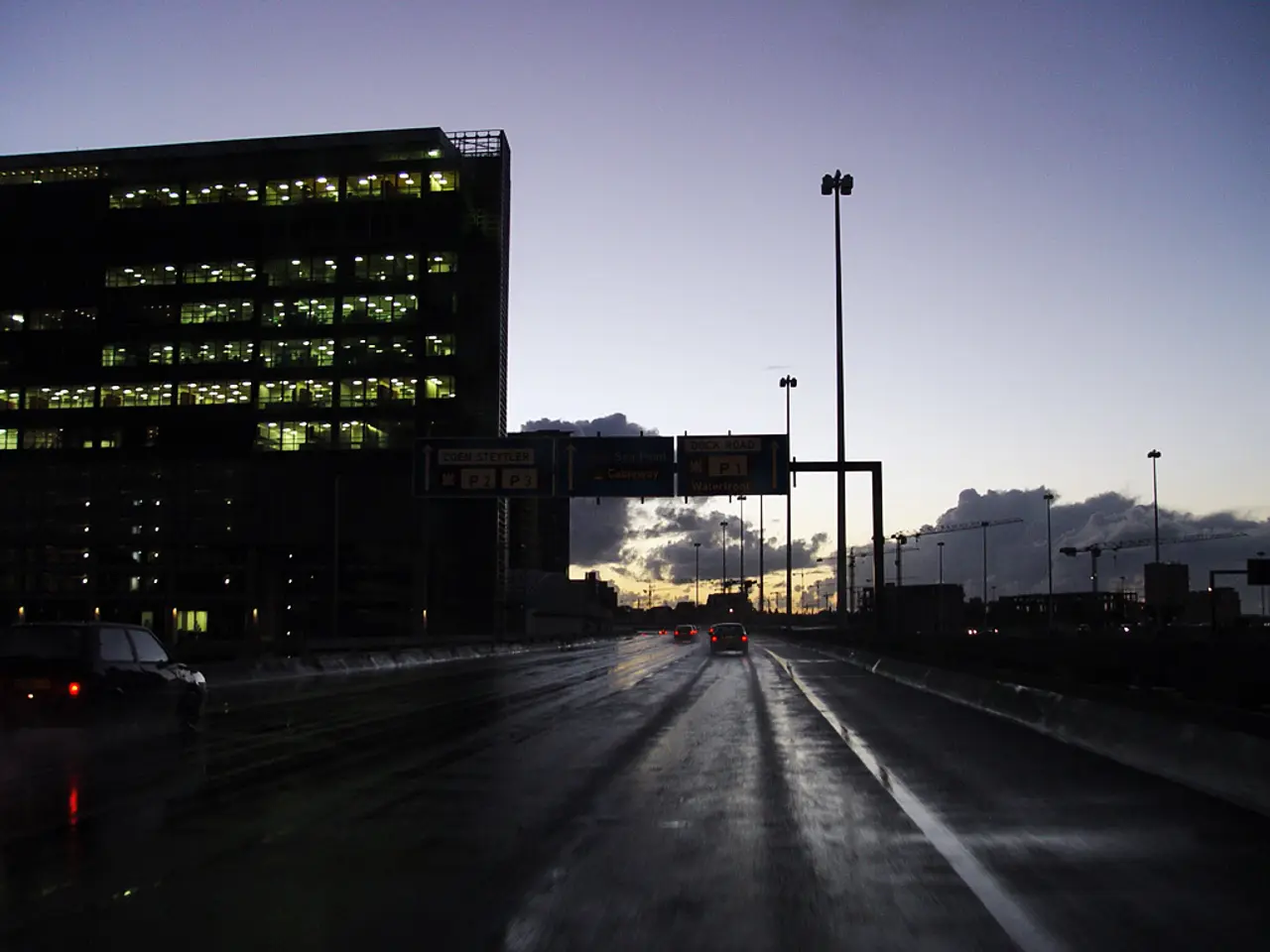Advocating for Change in Regulations: Aligning with Leader Scalise on Permitting Modernization
Streamlining Permitting Processes for a Stronger U.S. Economy
In a bid to boost economic growth and address critical challenges, a bipartisan permitting reform initiative is gaining momentum in the U.S. Congress. One of the key advocates for this change is the Chamber's Permit America to Build coalition, a network of nearly 350 organizations pushing for modernization of the permitting system.
The initiative, which is backed by both Democrats and Republicans, aims to create a comprehensive reform package guided by four principles: predictability, efficiency, transparency, and stakeholder input. The reform is crucial to address challenges such as energy security, the global AI race, and economic competitiveness.
Businesses are eager to innovate, invest, and build, but are being hindered by an inefficient permitting process that delays projects that should be approved in months for years. Delays due to excessive reviews, interagency gridlock, and legal uncertainty are common issues faced by businesses.
Recently, the Standardizing Permitting and Expediting Economic Development (SPEED) Act was introduced by Representatives Bruce Westerman (R) and Jared Golden (D) to address these issues. The bill proposes amendments to the National Environmental Policy Act (NEPA) to reduce ambiguity and speed up permitting for infrastructure projects across sectors such as energy, transportation, water systems, and broadband.
Another significant development is the Clean Water Act (CWA) permitting reform package, which was advanced by the House Transportation & Infrastructure (T&I) Committee in early July 2025. This package, known as the PERMIT Act, aims to clarify state and federal roles and reduce red tape around Section 401 CWA certifications.
The Biden administration’s Environmental Protection Agency (EPA) is also engaged in this area, issuing memoranda and planning new rulemakings to refine CWA permitting rules in line with reform goals.
In addition to these legislative efforts, federal agencies are exploring the use of artificial intelligence (AI) tools to accelerate approvals, especially for qualifying large-scale projects like data centers and energy infrastructure. One such initiative is the Department of Energy’s PermitAI.
The oil and natural gas industry is also urging Congress to pass permitting reforms to unleash energy production and support economic growth. This broad support from various sectors underscores the economic importance of reform.
The Chamber and its Permit America to Build coalition are working with Members of Congress on both sides of the aisle to craft solutions that deliver results for businesses, communities, and the environment. They are encouraging Congress to enact durable, comprehensive reform that applies across sectors and withstands political shifts.
In conclusion, permitting reform efforts in Congress are progressing through bipartisan legislative proposals such as the SPEED Act and PERMIT Act, supported by strong industry coalitions and technological modernization initiatives within federal agencies. Key bills await votes, and federal agencies remain active in rulemaking to align permitting rules with these reform objectives.
- The chamber of commerce's Permit America to Build coalition, a network of over 350 organizations, advocates for modernizing the permitting system to boost economic growth.
- The proposed reform aims to create a comprehensive package guided by principles such as predictability, efficiency, transparency, and stakeholder input, addressing challenges like energy security, economic competitiveness, and the global AI race.
- Businesses are hampered by an inefficient permitting process, with delays common due to excessive reviews, interagency gridlock, and legal uncertainty, hindering innovation, investment, and building.
- The SPEED Act, introduced by Representatives Bruce Westerman and Jared Golden, proposes amending the National Environmental Policy Act (NEPA) to speed up permitting for infrastructure projects across various sectors, including energy, transportation, water systems, and broadband.
- The PERMIT Act, advanced by the House Transportation & Infrastructure Committee, seeks to clarify state and federal roles and reduce red tape around Section 401 CWA certifications.
- Federal agencies are deploying artificial intelligence (AI) tools to accelerate approvals for large-scale projects, such as energy infrastructure and data centers, while the oil and natural gas industry urges Congress to pass permitting reforms for energy production and economic growth.




